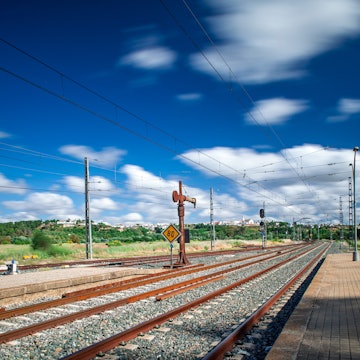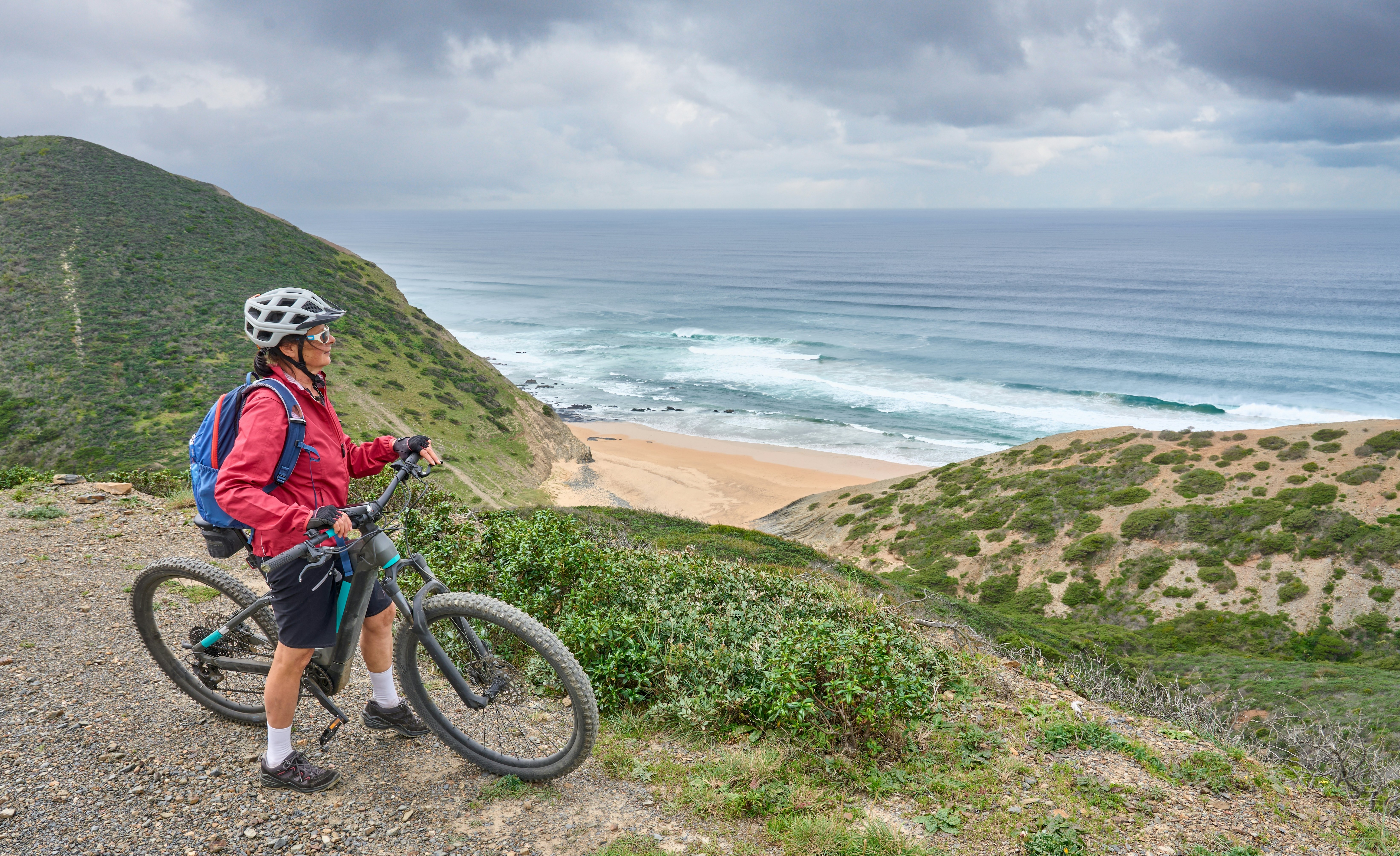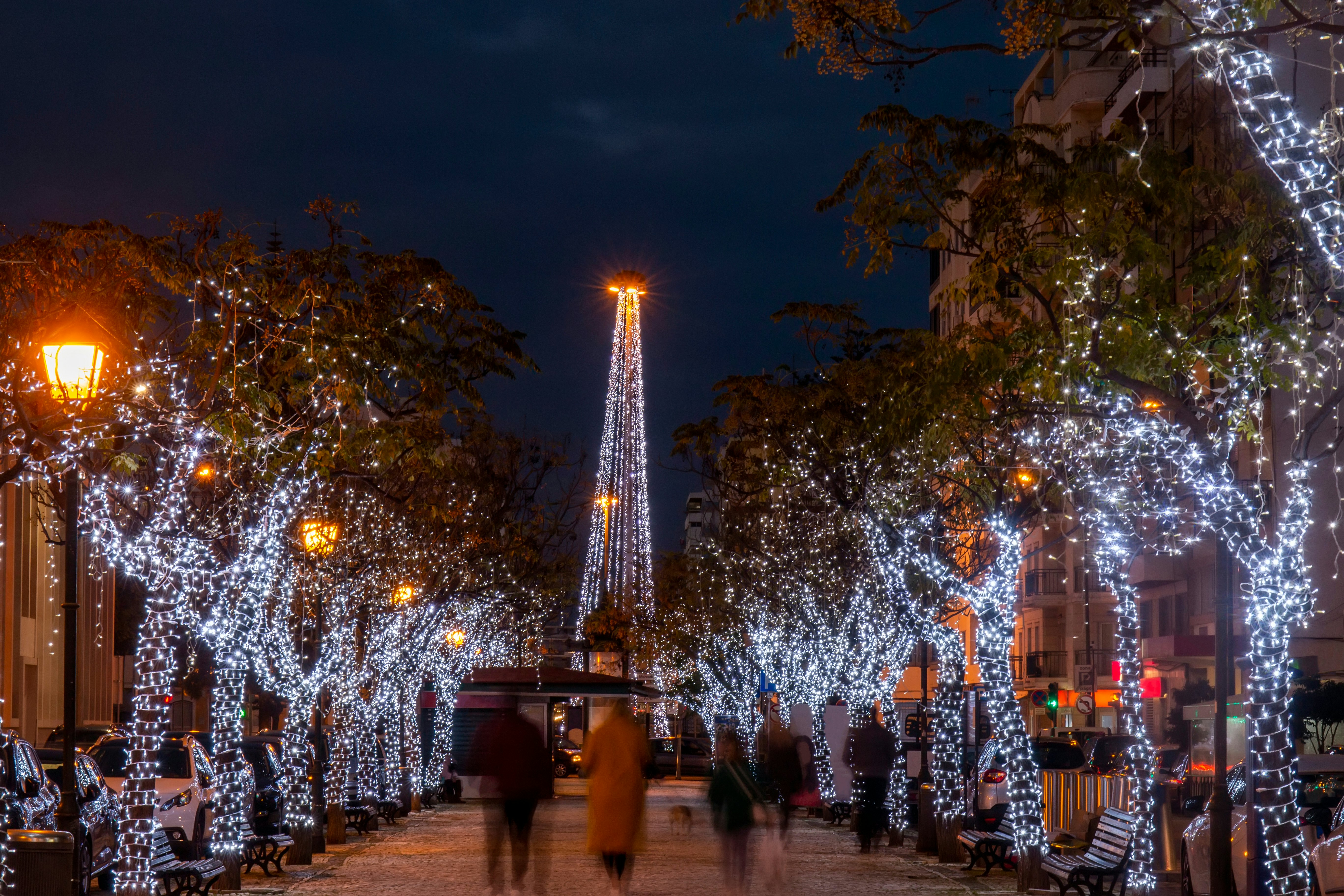
Nov 18, 20255 min read
How to travel overland from Seville to Lisbon: a slow-travel adventure by train and bus
The Rota Vicentina. Getty Images/iStockphoto
Although temperatures vary from month to month, the Algarve gets reliable sunshine 300 days a year, and with the obvious natural beauty of its cliff-backed golden beaches, this region in southern Portugal draws big crowds to one of the loveliest stretches of sand in Europe.
Summertime sees the biggest influx of visitors for sunbathing, plus surfing, kayaking and other water sports. Winter feels like an entirely different affair, but plenty of activities are on offer no matter when you visit.
Until recently, many resort towns in the Algarve virtually closed up for the winter, with limited options for lodging, dining and tours. That has changed in the past few years, as the Algarve's top spots have begun to refashion themselves as year-round destinations.
Nevertheless, some places still close for the season, so keep that in mind when making your plans. Here's our guide to the best times to come to the Algarve.

The region sizzles during high season, encouraging days of lounging on the beach followed by refreshing dips in the ocean (cold Atlantic currents mean that the sea never gets quite as warm as the Mediterranean). There’s also very little rainfall, and skies are virtually cloud-free during the height of summer. Festival season kicks off in June, and the whole region joins the party at events like MED in Loulé.
In July and August – the Algarve’s hottest months – the average temperature is around 28°C (82°F), though some days can get as hot as 40°C (104°F). With cool ocean breezes, evening temperatures hover around 22°C (72°F), which is just about perfect for outdoor dining. Music festivals on the beaches attract a surge of visitors in July: Afro Nation Portugal brings the party to Portimão, and the incredible spectacle of the candlelit Mercado de Culturas festival lights up Lagoa.
The high August temps practically demand a dip in the cool Atlantic waters. It's also a great month to spot dolphins on a boat excursion. Mingle with locals at Portimão's street food fest and Olhão's seafood festival to appreciate some of the delicious local cuisine.
Naturally, the inviting beach conditions coincide with heaviest season for tourism. Hotel prices are at their highest, and the crowds hit their peak. If you plan to visit at this time, you’ll need to plan well in advance. Expect to pay a premium when it comes to accommodations. You’ll also have to share those pretty sands with plenty of other travelers – though you can still find quieter beaches if you move away from busy tourist centers like Albufeira and Lagos.

The spring months from April to May and the autumn months from mid-September to October are the best times to visit if you’re interested in hiking, horseback riding, mountain biking and other land-based activities. The days are still warm and sunny, though there's a small chance of sparse drizzle, and the temperatures rarely get so hot as to be uncomfortable.
Easter typically marks the end of the low season in the Algarve, with the first signs of life emerging in the region's slumbering seaside towns. Easter processions add excitement, as does Liberation Day (April 25), when you can see fireworks and parades in some of Portugal's prettiest villages. April and May are also good months to spot wildflowers on the hillsides, in the fields and around the coastal areas.
Whether you're heading on a long hike such as the 300km (186-mile) Via Algarviana or simply going for a walk in the afternoon, the sunny, rain-free month of May is a great time to be out and about. Day parties and dance workshops come to Albufeira during the Kizomba Open Summer Festival – don't miss the opportunity to dance until dawn with an impressive roster of international artists.
Water temperatures in September aren’t much different than in August, but cooler air makes for enjoyable beach days. You'll see fewer crowds than during the previous month. Practice your best strut beneath the sun at the Festival Flamenco in Lagos.
Birdwatchers flock to the Algarve in October to witness winged beauties passing through en route to Africa during the annual autumn migration. This is also an excellent month for outdoor activities, as you’ll get a welcome break from the summer heat.
You’ll find noticeably lighter crowds during these shoulder seasons, and you can save as much as 30% on lodging rates compared to the high season.

The Algarve feels like a different place if you visit in the low season. There are fewer crowds, and you'll hear much more Portuguese spoken everywhere you go. Temperatures drop, but the days are still quite pleasant, with average highs of around 16°C (61°F), even during the coldest weeks in January and February. Though most of the Algarve’s annual rainfall comes during the winter, the showers tend to be short, and you’ll likely see a fair number of sunny days.
As the days grow shorter in December, nighttime temperatures are brisk, but days are mild, with highs around 17°C (62°F). In the buildup to Christmas, many towns have special markets and display life-size nativity scenes (Vila Real de Santo António has one of Portugal’s biggest tableaus). The Algarve’s cultural calendar in January fills with art exhibitions, dance and theater performances, and film screenings. Faro, Portimão, Lagos, Loulé and Albufeira have the most going on, along with Tavira and Silves.
On chilly February nights, locals nestle inside to catch live music and dance performances in key cities. With the general absence of tourists, days are fairly quiet at seaside towns, except during Carnaval's parades and revelry in the streets. With pleasant temperatures, the early days of spring in March bring longer days and the first blooms to the hillsides around the region.
Low season in the Algarve is still a great time to be outdoors, though picture yourself taking long walks on the seaside without crowds – but with a light jacket handy – rather than swimming in the ocean.